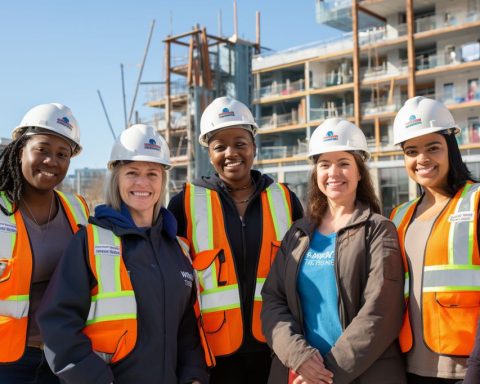The District Development Model (DDM) is a transformative approach to governance that aims to address poverty, inequality, and unemployment while meeting the needs of communities. This article explores the DDM, its implementation, and the contribution of Minister Thembi Nkadimeng in championing this model.
Minister Thembi Nkadimeng: Advocate for Women’s Empowerment in Governance
Minister Thembi Nkadimeng is an inspiring figure in South African governance and a staunch advocate for women’s empowerment and gender-responsive budgeting. Drawing inspiration from the women who marched to the Union Buildings in 1956 against Apartheid Laws, Minister Nkadimeng works tirelessly to promote gender equality and the full participation of women in the economy, particularly at the local government level.
The District Development Model: An Operational Model for Improving Cooperative Governance
The DDM is an operational model that aims to build a capable, ethical, and developmental state while enhancing state capacity, institutional powers, and functions. It serves as a bridge between the three spheres of government, ensuring better coordination, coherence, and integration of government functions while bringing government closer to the people.
Implemented through spatialisation and reprioritisation, the DDM is anchored around the One Plan, an intergovernmental plan targeted for each district and metropolitan space. Through the One Plans and One Budget, a quality assurance process assesses the quality of all submitted plans, informing the review and updating of the plans across all district and metro spaces.
Political Champions and Achievements of the DDM
To facilitate seamless intergovernmental collaboration, President Cyril Ramaphosa appointed National Political Champions, and Premiers appointed Provincial Political Champions. These champions provide political oversight and support to improve cooperation and collaboration across the three spheres of governance to implement the DDM.
Since its inception, the DDM has achieved significant milestones, such as launching in three pilot sites, developing profiles for all district and metro spaces, and establishing an Implementation Coordinating Committee at the national level. Furthermore, economic recovery plans have been developed in 46 districts and metros, and DDM Political Champions have been appointed to provide strategic guidance.
The DDM Presidential Imbizo: An Integrated, District-Based Service Delivery Approach
The DDM Presidential Imbizo is an ongoing government service delivery and monitoring programme that ensures an integrated, district-based service delivery approach. Since March 2022, the Imbizo has given millions of South Africans a voice, allowing them to raise their concerns and praises for the government’s work in various sectors.
Through these engagements, the government has demonstrated the democratic principle of participatory democracy and the theme “Leave no one behind.” The Imbizo has enabled communities to voice their issues, with the government responding in real-time by providing advice, guidance, and action plans.
Stakeholder Participation and the DDM’s Continued Success
As the DDM continues to be institutionalised across South Africa, the participation of various stakeholders, including Traditional and Khoi-San leaders, business, and civil society, is essential for its success. The DDM Imbizo emphasizes the importance of community participation and engagement, translating into accelerated public service delivery.
Minister Thembi Nkadimeng’s dedication to the DDM has fostered an environment of collaboration and active public participation, helping bring the government closer to the people. The model’s continued implementation and evolution will surely contribute to a more inclusive and equitable South Africa, ensuring no one is left behind.












